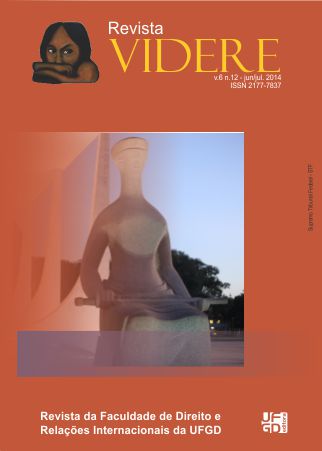Terrenos de marinha: problemática envolvendo as taxas e sua demarcação
Keywords:
Terrenos de marinha. Taxas. Demarcação.Abstract
O artigo tem por objetivo de abordar as principais problemáticas acerca dos terrenos de marinha e acrescidos, particularmente no que se refere à questão tributária, o valor das taxas de ocupação frente a dinâmica da valorização dos imóveis situados nas áreas litorâneas/balneários e a (i)legalidade no procedimento de demarcação dos terrenos de marinha. A origem do instituto encontra-se no Brasil império, e a sua criação justificava-se pela proteção do território nacional. Atualmente, os terrenos de marinha classificam-se como bens da União conforme o artigo 20, inciso VII, da Constituição Federal e a sua definição encontra-se nos artigos 2º e 3º do Decreto-lei n. 9.760/46 e demais normativas (Decreto-lei n. 9.760/46, o Decreto-lei n. 2.398/87, a Lei n. 9.636/98, e a Lei n. 11.481/07). A lei estabelece como marco de delimitação a Linha da Preamar Média de 1831, contudo, a SPU vem realizando a demarcação de forma presumida, utilizando como parâmetro a linha do jundu, o que tem gerado polêmicas e a busca do judiciário. Nesse cenário, surgiram duas Propostas de Emenda à Constituição, quais sejam a PEC n. 53/07 e a PEC n. 56/09, e também o Projeto de Lei n. 5.627/13, que propõem mudanças na regulamentação dos terrenos de marinha. A pesquisa foi qualitativa, utilizando-se o método de abordagem indutivo. Foram utilizadas a pesquisa bibliográfica em doutrina, legislação, jurisprudência, artigos e publicações da internet.Downloads
Downloads
How to Cite
Issue
Section
License
Authors must accept the publication rules when submitting the journal, as well as agree to the following terms:
(a) The Editorial Board reserves the right to make changes to the Portuguese language in the originals to maintain the cultured standard of the language, while respecting the style of the authors.
(b) Authors retain the copyright and grant the journal the right to first publication, with the work simultaneously licensed under the Attribution-NonCommercial-ShareAlike 3.0 Brazil (CC BY-NC-SA 3.0 BR) that allows: Share - copy and redistribute the material in any medium or format and Adapt - remix, transform, and create from the material. CC BY-NC-SA 3.0 BR considers the following terms:
- Attribution - You must give the appropriate credit, provide a link to the license and indicate whether changes have been made. You must do so under any reasonable circumstances, but in no way that would suggest that the licensor supports you or your use.
- NonCommercial - You may not use the material for commercial purposes.
- Sharing - If you remix, transform, or create from material, you must distribute your contributions under the same license as the original.
- No additional restrictions - You may not apply legal terms or technological measures that legally restrict others from doing anything that the license permits.
(c) After publication, authors are allowed and encouraged to publish and distribute their work online - in institutional repositories, personal page, social network or other scientific dissemination sites, as long as the publication is not for commercial purposes.



















